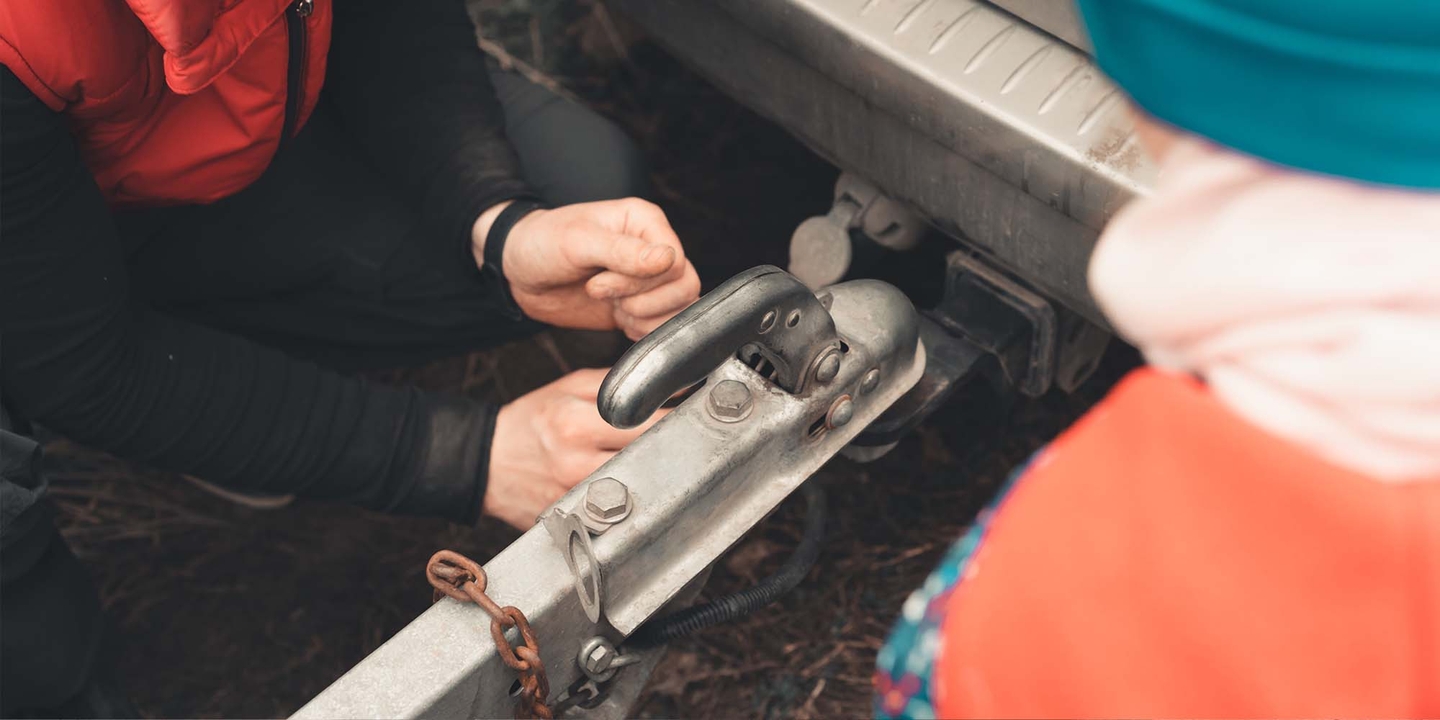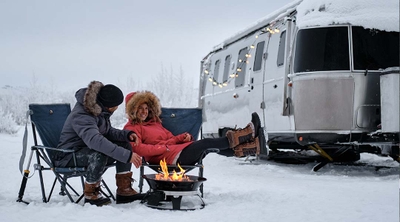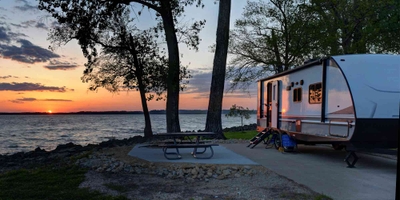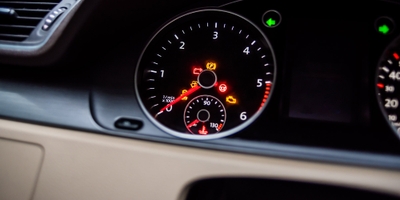Hitch and towing maintenance you should do every year
4 min read
Travel trailers and fifth wheels are two of the most popular RVs on the market. And there’s good reason to own a towable: You can set them up at your campsite and then still have your towing vehicle for excursions like exploring the surrounding area or picking up supplies.
But owning a towable means having all the right systems in place to safely tow it to each destination—including a proper tow vehicle and a reliable hitch and towing system.
While it’s not the most complicated design, there’s a learning curve to setting up a towable and ensuring you’re prepped for each trip. Luckily, it becomes more comfortable each time.
But routine annual maintenance to your hitch and towing system is a requirement and not an above-and-beyond, optional safety step. Yearly maintenance will help you catch early signs of wear and tear, and it will help your gear last longer. Here are the top five maintenance tasks you should perform on your hitch and towing system every year.
Visual inspection
You should already complete a visual inspection of your rig as a part of your pre-trip checklist. It’s the most effective way to catch something that could prove to be a bigger problem further down the road. The same goes with your hitch and towing system. But we recommend an additional step.
Each year, take the time to disassemble your hitch and towing components to complete a visual inspection. In the automotive industry, this process is called R&R, or remove and replace. Here, the idea is to achieve a more thorough inspection when you disassemble parts.
As you remove pieces, including pins and mounting hardware, identify anything that’s stuck or doesn’t move as it should. This could indicate there’s a problem with the amount of weight distribution.
You should be able to spot any damage or wear and tear before it becomes a severe problem. Keep an eye out for any rust, corrosion, exposed metal, or cracks on any of the components, and take this time to inspect all welds on the frame to ensure there’s no damage or cracking occurring. Note any minor changes so you can watch for progression.
Hitch lubrication
In general, lubrication on the hitch and towing components helps prevent direct metal-on-metal connections.
Lubrication allows for some “play” in the movement of these components necessary for a smoother ride, preventing damage and ensuring the flexibility needed to adjust during turns or bumps or when driving over debris on the road.
What components need to be lubricated? This will depend on your system, as the fifth wheel hitch connection differs from your ball mount for a travel trailer. But as a general rule, you want to lubricate any friction surfaces, which are any areas where you know metal-on-metal movement occurs.
Before lubricating any area, make sure the area is clean and dry. So wipe away any dirty grease or lubrication from the previous application, and ensure all surfaces are dry. You’ll want to lubricate the ball of the ball mount and the inside of the receiver.
You can also use a lubricant like WD-40 around the pins and the exterior of the hitch coupler, lock, and lock lever. This will help prevent rust and corrosion caused by the elements.
Note: If your fifth wheel uses a lube plate, you do not need to add additional grease or lubrication.
Weight distribution hitch maintenance
Weight distribution hitches distribute the tongue weight evenly between the trailer and the tow vehicle axles.
This eliminates pressure building on a single location to extend the life of your components and make travel smoother. Your tongue weight should only operate with 10% to 15% of the total weight.
Like any other component, the weight distribution hitch will have friction surfaces that need to be lubricated. Because the weight distribution hitch has more points of contact, you’ll want to lubricate each of these, being careful to open the arms fully to reach inaccessible friction surfaces.
This particular bit of maintenance should be performed more than once a year. Complete this on a case-by-case basis as needed, but once a trip is a good idea.
Tire and axle alignment
Just like autos and trucks, towables like travel trailers and fifth wheels require tire and axle alignments to ensure all components are working together evenly. When the axle or tires get out of sync, it can cause uneven wear and will eventually result in damage to your trailer.
Road hazards like potholes, bumps, and debris can cause components to shift out of alignment. This happens more frequently the more you drive your travel trailer. So if you just take the occasional trip to the local campground, you won’t need an alignment nearly as often as a full-time or long-distance RVer who travels frequently.
Weight matters in these situations, too. Suppose you own a toy hauler that’s carrying additional weight from ATVs or other outdoor equipment. In that case, you should consider aligning the tires and axles more often due to the added strain on your suspension, frame, tires, and axles.
It’s possible to perform alignments on your own. But when dealing with a trailer, a shop likely has the tools, equipment, and technology to easily provide a more accurate alignment.
Electrical connections
Remember that your trailer is an extension of your vehicle, and all electrical connections have to be maintained and inspected regularly.
Each year, your RV likely sits for a good amount of time, either in storage or outdoors, exposed to the elements. Either way, this time increases the likelihood of problems with your electrical. During your visual inspection, look for any corrosion, frayed wires, rust, evidence of animals, or anything that might have disrupted the electrical connections on your hitch and towing system.
Perform light checks to ensure turn signals, brake lights, and other signal lights are working properly. You’ll likely hear a sporadic clicking on your tow vehicle when you toggle the turn signal if there’s a bad fuse or your bulb is burned out.
If you notice any light not working correctly and you’ve already inspected the fuses, connection, and visible wires, it may be time to take your trailer to have the electrical inspected by a professional.
Complete annual maintenance on your hitch and towing systems to prolong the life of your components, make the ride smoother, and improve the overall safety of your rig. Combine these tips with mechanical breakdown coverage, and you’ll travel easier knowing you’re protected.






